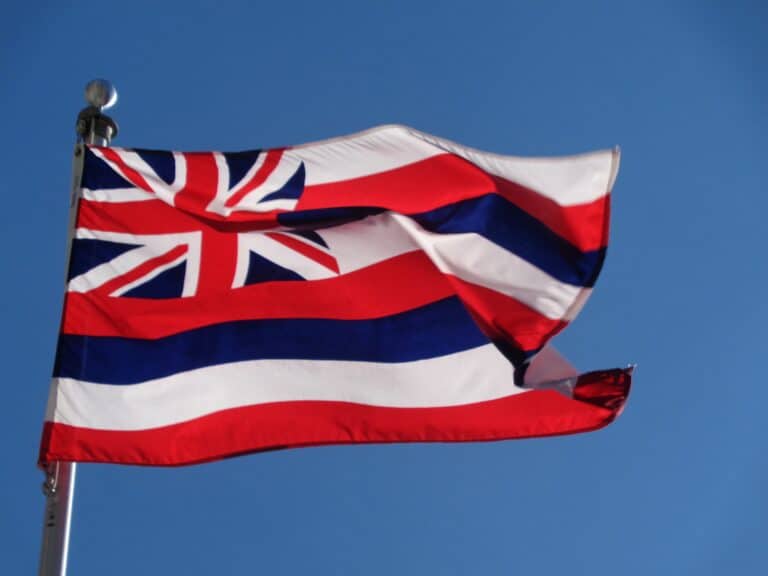A total ban on butterfly knives is unconstitutional, a federal appeals court ruled Monday.
A three-judge panel for the Ninth Circuit Court of Appeals reversed a lower court ruling that upheld Hawaii’s complete ban on selling and possessing butterfly knives. It did so after finding that a categorical prohibition on the knives violates the Second Amendment because the state couldn’t justify the restriction under the test laid out in the Supreme Court’s New York State Rifle and Pistol Association v. Bruen decision.
“Because the possession of butterfly knives is conduct protected by the plain text of the Second Amendment, and because Hawaii has not demonstrated that its ban on butterfly knives is consistent with this Nation’s historical tradition of regulating arms, we conclude that section 134-53(a) violates Plaintiffs’ Second Amendment rights,” Judge Carlos Bea, a George W. Bush appointee, wrote on behalf of the unanimous panel in Teter v. Lopez.
The ruling’s most immediate impact will be to allow residents of Hawaii to own butterfly knives, which have been a crime to manufacture, sell, and possess in the state since 1993. However, the reasoning used to arrive at the decision and the precedent it sets could soon impact other bans in states that are part of the circuit, including California, Oregon, and Washington. Four of the nine states in the jurisdiction currently ban so-called assault weapons, “large-capacity magazines,” or both.
Alan Beck, one of the attorneys representing the plaintiffs challenging Hawaii’s ban, celebrated the decision and argued it was the “correct application of Bruen and Heller.”
“The ultimate application of Heller and Bruen is that arms which are owned for lawful purposes are protected and can’t be banned,” he told The Reload. “Knives are specifically mentioned as a type of arm in the Heller opinion, and they were once again noted as a type of arm in Bruen, so there’s no reason why a butterfly knife should be banned by the state of Hawaii.”
The government of Hawaii attempted to justify its ban by arguing that butterfly knives are uniquely dangerous weapons associated with criminality rather than lawful uses such as self-defense. The Ninth Circuit rejected those arguments because Hawaii’s ban is not limited to those with a criminal history but extends to all residents.
“The record does not support a conclusion that the butterfly knife has uniquely dangerous propensities. The butterfly knife is simply a pocketknife with an extra rotating handle,” Bea wrote. “Hawaii has submitted no evidence that butterfly knives are not typically possessed by law-abiding citizens for self-defense.”
The court then turned to a review of American history to search for a tradition of states banning classes of weapons. The government of Hawaii argued state laws dating back to 1837 that regulated weapons like Bowie knives, “Arkansas toothpicks,” slung-shots, and sword-canes were legitimate analogues to its modern-day ban. The Ninth Circuit panel disagreed, stating that all the cited laws dealing with bladed weapons regulated public carry rather than a total possession ban.
“Notably, the cited statutes regulated kinds of knives that are distinct from butterfly knives. The butterfly knife is clearly more analogous to an ordinary pocketknife than to an Arkansas Toothpick or a bowie knife,” Judge Bea wrote. “And none of the statutes cited by Hawaii prohibited the carry of pocketknives, much less their possession outright. Four of these statutes, in fact, exempted pocketknives by name.”
The panel also dismissed the possibility that crime committed with butterfly knives constituted an “unprecedented societal concern,” an argument judges have increasingly turned to in order to uphold hardware bans in other jurisdictions.
“The 1999 Hawaii Legislature addressed the perceived social problem of an ‘increasing trend in minors and gang members armed with knives and daggers,’ who preferred butterfly knives ‘as they are easy to conceal and are more intimidating when brandished,'” Bea wrote. “But the problem of people using easily concealable, foldable knives in violent crimes predates 1999 by hundreds of years.”
“Hawaii cites no analogues in which Congress or any state legislature imposed an outright ban on the possession of pocketknives to remedy this problem near 1791 or 1868,” he added. “‘[E]arlier generations addressed the societal problem’ of knife violence ‘through materially different means’ other than outright bans on certain types of pocketknives, which goes to prove that section 134-53(a) violates the Second Amendment.”
The Ninth Circuit reversed the district court’s previous ruling and remanded the case back to it for further proceedings.
Hawaii Attorney General Anne Lopez (D.) did not respond to a request for comment.






